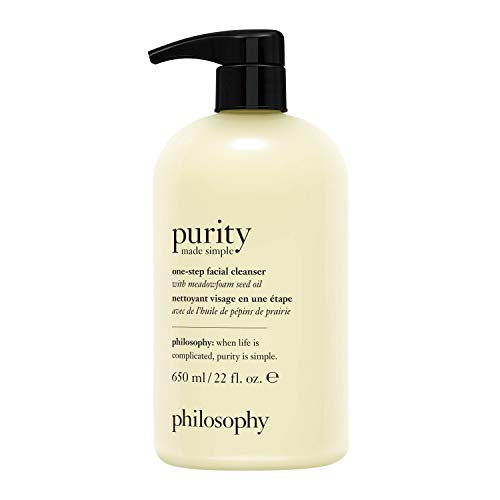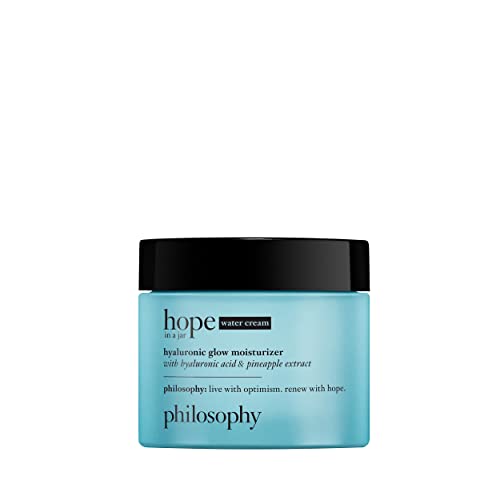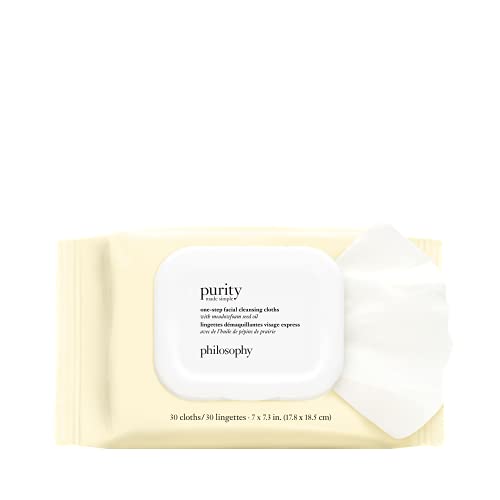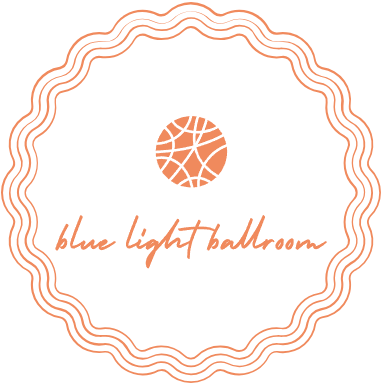Best Readings In Moral Philosophy
In this article, we will introduce some of the most influential thinkers in moral philosophy. We will start with Aristotle, who laid the foundations for much of Western thought on ethics. We will then move on to Kant, who argued that reason is the highest authority when it comes to morality. Next, we will look at Utilitarianism, which holds that the right thing to do is whatever maximizes happiness. Finally, we will explore some more contemporary theories, such as virtue ethics and feminist ethics.
Why Readings In Moral Philosophy Is Necessary?
One of the main aims of moral philosophy is to attempt to answer the question “What is the good life?” In order to live a good life, it is important to have a clear understanding of what morality entails. Unfortunately, there is no easy answer to this question since there are many different theories of morality and each one has its own definition of what goodness entails. However, by reading some of the best readings in moral philosophy, you can gain a better understanding of what moral philosophers have traditionally thought about this question and how their thoughts can apply to your own life. Additionally, even if you don’t agree with everything that you read, it can still be useful in helping you develop your own thinking on the subject.
Our Top Picks For Best Readings In Moral Philosophy





Best Readings In Moral Philosophy Guidance
philosophy Purity Made Simple One-Step Facial Cleanser, 22 oz

Purity Made Simple One-Step Facial Cleanser is the best cleanser for your face if you’re looking for a product that will give you a deep cleanse without over-drying your skin. This cleanser is perfect for all skin types and can be used morning and night. Simply apply to your face and neck and rinse with warm water. You’ll immediately notice your skin feels softer and smoother.
Purity Made Simple One-Step Facial Cleanser contains natural ingredients like chamomile and lavender oil, which work together to cleanse, soothe and calm the skin. This product is also free of sulfates, parabens, phthalates and synthetic fragrances, so you can feel good about using it on your skin.
Common Questions on philosophy Purity Made Simple One-Step Facial Cleanser, 22 oz
• What are the benefits of using Purity Made Simple One-Step Facial Cleanser?Purity Made Simple One-Step Facial Cleanser is an award-winning cleanser that is clinically proven to remove makeup, dirt, and oil in just one step. It is also non-comedogenic, fragrance-free, and sulfate-free.
• How do I use Purity Made Simple One-Step Facial Cleanser?
Use Purity Made Simple One-Step Facial Cleanser as your morning and evening cleanser. Pump into hands and massage onto damp face. Rinse with warm water and pat dry.
• What are the key ingredients in Purity Made Simple One-Step Facial Cleanser?
The key ingredients in Purity Made Simple One-Step Facial Cleanser are: Water (Aqua), Cocamidopropyl Hydroxysultaine, Sodium Lauroyl Methyl Isethionate, PEG-120 Methyl Glucose Dioleate, Phenoxyethanol, and Citric Acid.
Why We Like This
1. Purity Made Simple is an award winning one step facial cleanser that removes makeup, dirt, and oil in just one simple step.
2. Purity Made Simple is gentle enough for use on sensitive skin and is safe for use around the eyes.
3. Purity Made Simple is non comedogenic and soap free.
4. Purity Made Simple has been awarded the Allure Best of Beauty Award and the Reader’s Choice Award.
5. Purity Made Simple is proudly made in the USA.
Additional Product Information
| Height | 7.41 Inches |
| Length | 3.25 Inches |
| Weight | 1.62 Pounds |
philosophy hope in a jar hyaluronic glow water cream, 2 Fl Oz (Pack of 1)

When it comes to finding the perfect moisturizer, many people turn to hope in a jar hyaluronic glow water cream. This unique formula is designed to hydrate and brighten the skin, giving you a more youthful appearance.
But what exactly is in this “hope in a jar” that makes it so special? Let’s take a closer look at the ingredients:
HYALURONIC ACID: This powerful ingredient helps to lock in moisture, keeping your skin hydrated and plump.
GLYCERIN: Glycerin is a humectant, meaning it helps to attract and retain moisture. It’s often used in skincare products to help prevent dryness.
WATER (AQUA): Water is the main ingredient in this cream, making up over 70% of the formula. It helps to hydrate and refresh the skin.
PROPYLENE GLYCOL: This substance is used to help keep products from drying out. It also helps to attract moisture to the skin.
PANTHENOL: Also known as vitamin B5, panthenol is a moisturizing agent that helps to keep the skin hydrated.
ALLANTOIN: All
Common Questions on philosophy hope in a jar hyaluronic glow water cream, 2 Fl Oz (Pack of 1)
• What is the main ingredient in this product?The main ingredient in this product is hyaluronic acid.
• What is the purpose of this product?
This product is designed to hydrate and plump the skin.
• How do you use this product?
Use this product after cleansing and toning the skin. Gently massage into the skin until fully absorbed.
Why We Like This
• 1. Exfoliates dead skin cells• 2. Brightens and evens skin tone• 3. Reduces the appearance of fine lines and wrinkles• 4. Firms and tightens skin• 5. Hydrates and plumps skin
Additional Product Information
| Color | BLUE |
| Height | 2.25 inches |
| Length | 2.563 inches |
| Weight | 0.6 Pounds |
The Ethical Life: Fundamental Readings in Ethics and Moral Problems

The Ethical Life: Fundamental Readings in Ethics and Moral Problems is an anthology of readings on ethical theory and moral problems. The book is divided into four sections: (1) theoretical ethics, (2) normative ethics, (3) meta-ethics, and (4) applied ethics. The readings in each section are organized chronologically, from the ancient to the modern.
The book begins with an introduction by the editor, Russ Shafer-Landau, that provides an overview of ethical thought from the pre-Socratics to the present. The introduction also discusses the various approaches to ethics, including deontological, consequentialist, and virtue ethics.
The first section, on theoretical ethics, includes readings by Plato, Aristotle, Immanuel Kant, John Stuart Mill, and G.E. Moore. The second section, on normative ethics, includes readings by W.D. Ross, Elizabeth Anscombe, Thomas Nagel, Jean-Paul Sartre, and Susan Wolf. The third section, on meta-ethics, includes readings by David Hume, John Rawls, Bernard Williams, Simon Blackburn, and Geoffrey Sayre-McCord. The fourth and final section, on applied ethics, includes readings on abortion, euthanasia
Common Questions on The Ethical Life: Fundamental Readings in Ethics and Moral Problems
• What is the difference between an ethical and a moral problem?An ethical problem is one that challenges our understanding of what is right or wrong, while a moral problem is one that challenges our ability to act in accordance with our ethical principles.
• What is the difference between an absolutist and a relativist approach to ethics?
An absolutist approach to ethics holds that there are universal standards of right and wrong, while a relativist approach holds that morality is relative to culture or individual preferrences.
• What are some of the major ethical theories?
Consequentialism, Deontology, and Virtue Ethics are some of the major ethical theories.
• What are some of the major moral problems?
Some of the major moral problems include abortion, euthanasia, capital punishment, and genetic engineering.
• How can we resolve ethical problems?
We can resolve ethical problems by engaging in thoughtful reflection and discussion, considering different perspectives, and applying ethical theories.
Why We Like This
1. The Ethical Life is a comprehensive introduction to ethics that covers major philosophical theories and moral problems.
2. The book features readings from renowned ethical thinkers such as Aristotle, Immanuel Kant, and John Stuart Mill.
3. The Ethical Life provides a detailed examination of controversial moral issues such as abortion, euthanasia, and same sex marriage.
4. The book includes an accessible and engaging writing style that makes complex ethical concepts easy to understand.
5. The Ethical Life is an essential resource for anyone interested in ethics and morality.
Additional Product Information
| Height | 5.4 Inches |
| Length | 8.2 Inches |
| Weight | 1.15522225288 Pounds |
The Founders’ Speech to a Nation in Crisis: What the Founders Would Say to America Today

The United States is in the midst of a national crisis. The current administration has brought the country to the brink of collapse with its reckless spending, its corruption, and its failed policies. The Founders of our country would be horrified by what has become of the once-great nation they fought so hard to create.
In their time of crisis, the Founders turned to the principles on which they had founded the nation. They reminded themselves and their fellow citizens that they were a people who believed in liberty and justice for all. They rededicated themselves to the proposition that all men are created equal. And they recommitted themselves to the task of ensuring that the government they had created would protect the rights of all Americans.
Today, we must do the same. We must remind ourselves of the principles on which this nation was founded. We must rededicate ourselves to the proposition that all men are created equal. And we must recommit ourselves to the task of ensuring that the government we have created will protect the rights of all Americans.
The Founders would be horrified by the current state of affairs in the United States. They would be shocked by the level of corruption in the government. They would be dismayed by the failure of the government to protect the rights
Common Questions on The Founders’ Speech to a Nation in Crisis: What the Founders Would Say to America Today
• How would the Founders view America’s current situation?The Founders would likely be very disappointed in America’s current situation. They would see a nation that is divided and in crisis, and would call for Americans to come together and work towards solutions.
Why We Like This
1. The Founders’ Speech to a Nation in Crisis is a powerful and timely book that addresses the challenges America is facing today.
2. The book is authored by renowned historian David McCullough, who brings the Founders’ words to life in a way that is both informative and inspiring.
3. The book is a must read for anyone interested in American history or the current state of our nation.
4. The Founders’ Speech to a Nation in Crisis is an enlightening and thought provoking read that is sure to generate discussion and debate.
5. This book is a timely and important contribution to the national conversation and is sure to be a bestseller.
philosophy purity made simple – cleansing cloths, 30 ct

-Purity Made Simple cleansing cloths are the perfect way to cleanse your skin without having to rinse.
-These convenient, disposable cleansing cloths are designed to swipe away dirt, makeup and oil, leaving your skin feeling refreshed and clean.
-Purity Made Simple cleansing cloths are hypoallergenic and non-irritating, making them ideal for sensitive skin.
-The 30 count package is perfect for on-the-go cleansing, and the disposable nature of the cloths makes them easy to use and dispose of.
Whether you’re at home or on the go, Purity Made Simple cleansing cloths are a great way to cleanse your skin. These hypoallergenic, non-irritating cloths are designed to remove dirt, makeup and oil, leaving your skin feeling refreshed and clean. The 30 count package is perfect for on-the-go cleansing, and the disposable nature of the cloths makes them easy to use and dispose of.
Common Questions on philosophy purity made simple – cleansing cloths, 30 ct
• What is the name of the company that makes purity made simple cleansing cloths?Philosophy, Inc.
• What is the primary purpose of these cleansing cloths?
They are designed to cleanse the skin of dirt, makeup, and other impurities.
• How many cleansing cloths are included in each package?
30
• How often should you use these cleansing cloths?
It is recommended that you use them daily, or as needed.
Why We Like This
• 30 count• Gently wipe cloth on skin to remove dirt• No need to rinse• Disposable cleansing cloths• Swipes away dirt, makeup, and oil
Additional Product Information
| Height | 1.85 Inches |
| Length | 4.84 Inches |
| Weight | 0.55 Pounds |
Benefits of Readings In Moral Philosophy
There are many benefits of reading moral philosophy. First, it can help you develop a better understanding of ethical principles and how they apply to real-world situations. Additionally, reading moral philosophy can improve your critical thinking skills by forcing you to evaluate different arguments and perspectives. Finally, engaging with complex philosophical theories can make you more intellectually humble and open-minded. Ultimately, reading moral philosophy can make you a more virtuous person by helping you develop greater insight into the human condition and our shared ethical responsibilities.
Buying Guide for Best Readings In Moral Philosophy
Moral philosophy is the philosophical study of morality. It can be considered a branch of applied ethics or Meta-ethics. Moralphilosophers debate questions such as:
What is the nature of morality?
Is there an objective morality, or is it subjective?
How can we tell right from wrong?
What are good and evil?
Moral philosophy readings can vary in what they cover, but some common topics include:
Meta-ethics: This area covers the big questions in moral philosophy, such as whether there is objective morality, what ethical terms like “good” and “right” mean, and how we can distinguish between right and wrong actions.
Normative ethics: This area focuses on specific ways of thinking about right and wrong actions. Many normative ethical theories ask questions such as: What kind of life is best to live? How should we act towards others?, What rights do people have?, and What virtues are most important for a good person to have?
Applied ethics: In this area, moral philosophers focus on pressing real-world issues such as environmental damage, biomedical technologies, economic inequality, animal welfare, racism, sexism, and more. They ask questions like: Is it ever okay to lie?, Should people be allowed to own animals?, How do our responsibilities change when someone is very sick or near death?, etc.
So what makes a good moral philosophy reading? Here are five criteria to keep in mind:
1) Does the reading cover interesting and important topics in moral philosophy? There are many different areas within moral philosophy (Meta-ethics, normative ethics, applied ethics), so make sure the reading you choose covers topics that you find personally interesting.
For example, if you’re interested in John Stuart Mill’s view on happiness being the sole end of action then look for a reading that covers his Utilitarianism theory specifically.
Similarly, if you care deeply about animal rights then search for a reading on Peter Singer’sAnimal Liberation theory which argues that beings with interests ought not to be discriminated against based upon species membership alone.
2) Is the author knowledgeable about their subject matter? Make sure that whatever reading you choose is authored by someone who knows what they’re talking about. A quick way to check this is by looking at their credentials – do they have any relevant degrees or experience inmoral philosophy? If not Then it might not be worth your time reading something they wrote on the subject matter.
3) Is the author’s writing style clear and easy to understand? Not all concepts inmoral philosophy are easy difficult theories difficultto grasp– often times these readings canbe quite technical jargon-heavy., so try finding something written in plainer language so you won’t get lost while tryingto follow along.. One way determine whethera book will featurescapegoatthis problemis by checking reviews – other readerswill likely mentionif they had difficultylearningfromthe text due tothesestyleofwriting .soyoucan avoid wasting your timeonbadquality texts .4) Does The 4th criterionrelates towhetherthe book provides additional resourceswhich can aid your understandingofmore complex concepts ? Suchresourcesinclude thingslikefootnotes ,glossaries ,andbibliographies whichcanyouFrequentlyrefertoas needed . Havingthese additional resources availablecanmaketheorieSless dauntingto approachand makeit easierforyouto grasp tough conceptswithout Getting overwhelmed .5) Finally , 5checkprivilegeis whetherthe bookproperly addressesissuesofprivilege . Unfortunately White maleis still overrepresentedin most fields– includingmoralphilosophy – sowhenchoosinga text ,trytomakesurethat it includes perspectivesfroma diverse rangeof individualsrepresenting different genders , races , sexualities , socio – economic backgrounds Etcetera By taking into account these five factors – interesting & important topics , knowledgeable author with easily understandable writing style supported y Fourthreadings comprehensive resources which also genuinely engages with issues of diversity & privilegeequally – You should have no problem finding bestpossible readingsonmoralphilosophytoguidethe further advancementofyour knowledgeon this fascinating topic
Frequently Asked Question
How can we determine what is right or wrong?
There is no universal answer to this question, as what is considered right or wrong varies significantly from culture to culture and even from individual to individual. In general, however, people tend to use a combination of logic, intuition, personal experience, and cultural norms to determine what is right or wrong.
What is the relationship between morality and law?
The relationship between morality and law is complex. In some cases, morality and law may be aligned, such as when a law prohibits something that is considered morally wrong. In other cases, they may be in conflict, such as when a law requires something that is considered morally wrong. In still other cases, morality may be irrelevant to the law, such as when a law regulates something that is considered morally neutral.
What are the obligations of individuals to others?
Some general obligations that individuals may have to others could include things like respecting their personal space and boundaries, not causing them harm, and treating them fairly.
What are the limits of individual rights?
There are no limits to individual rights.
How should we deal with moral disagreements?
There is no one answer to this question as it depends on the particular situation. Some possible options include: -Attempting to understand the other person’s point of view and why they hold that belief- engaging in open and respectful dialogue- Seeking out common ground-agreeing to disagree
Conclusion
In conclusion, the best readings in moral philosophy offer a concise and thought-provoking introduction to moral theory. They provide an accessible and stimulating overview of some of the most important ethical thinkers and ideas, covering a wide range of topics such as consequentialism, deontology, virtue ethics, and more. Whether you are a student of philosophy or simply interested in exploring ethical issues further, these readings will give you much to reflect on.
